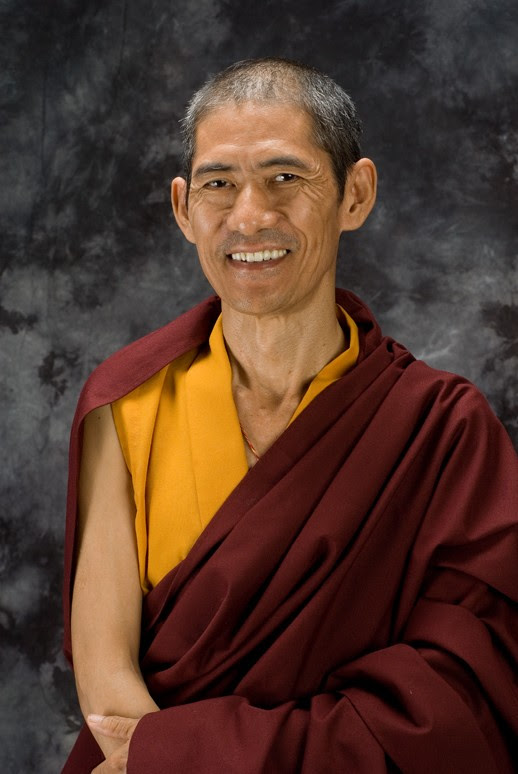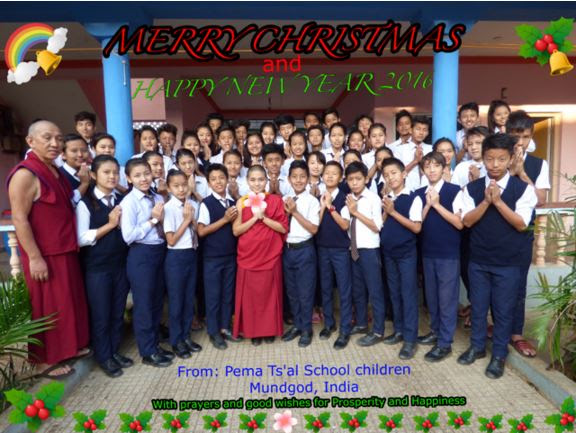Table of Contents
- JOURNAL> Publication Announcment: Journal of Buddhist Ethics Volume 22 (2015)
- RESOURCE> Release of the Beta Version of the ITLR – Indo-Tibetan Lexical Resource (December 24, 2015)
JOURNAL> Publication Announcment: Journal of Buddhist Ethics Volume 22 (2015)
by Dan Cozort
The Journal of Buddhist Ethics has published the following research
articles and reviews in Volume 22 (2015). All are free for viewing and
downloading at http://blogs.dickinson.edu/buddhistethics/category/volume-22-2015/RESEARCH ARTICLES
Ven. Pandita (Burma), “The Four Realities True for Noble Ones: A New Approach to the Ariyasaccas.”
Marek Sullivan, “Nature’s No-Thingness: Holistic Eco-Buddhism and the Problem of Universal Identity.”
Amod Lele, “The Metaphysical Basis of Śāntideva’s Ethics.”
Peggy James, “The Eco-Buddhism of Marie Byles.”
Todd Lewis, “Puṇya and Pāp in Public Health: Everyday Religion, Material Culture, and Avenues of Buddhist Activism in Urban Kathmandu.”
Ven. Anālayo. “Buddha’s Past Life as a Princess in the Ekottarika-āgama.”
Mary Jeanne Larrabee, “A Love Knowing Nothing: Zen Meets Kierkegaard.”
Lisa J. Battaglia, “Becoming Bhikkhunī? Mae Chis and the Global Women’s Ordination Movement.”
Kin Cheung, “Ethical Implications of Upāya-Kauśalya: Helping Without Imposing.”
Ven. Anālayo, “The Cullavagga on Bhikkhunī Ordination.”
Rachel H. Pang, “Rimé Revisited: Shabkar’s Response to Religious Difference.”
Bhikkhunī Dhammadinnā, “Predictions of Women to Buddhahood in Middle-Period Literature.”
Daniel Breyer, “The Cessation of Suffering and Buddhist Axiology.”
REVIEWS
The Birth of Insight: meditation, modern Buddhism, and the Burmese Monk Ledi Sayadaw. By Erik Braun. Reviewed by Douglas Ober
The Forerunner of All Things: Buddhaghosa on Mind, Intention, and Agency. By Maria Heim. Reviewed by Dhivan Thomas Jones
Critical Buddhism: Engaging with Modern Japanese Buddhist Thought. By James Mark Shields. Reviewed by Ronald S. Green
From Stone to Flesh: A Short History of the Buddha. By Donald S. Lopez, Jr. Reviewed by Geoffrey C. Goble
The Prophet and the Bodhisattva: Daniel Berrigan, Thich Nhat Hanh and the Ethics of Peace and Justice. By Charles R. Strain. Reviewed by Peter Herman
The Princess Nun: Bunchi, Buddhist Reform, and Gender in Early Edo Japan. By Gina Cogan. Reviewed by Febe D. Pamonag
Alms & Vows. By E.A. Burger. Commonfolk Films, 2010 & 2013. Reviewed by Nicole Goulet
Making Sense of Tantric Buddhism: History, Semiology, and Transgression in Indian Traditions By Christian Wedemeyer. Reviewed by Joseph P. Elacqua
The Yogin & the Madman: Reading the Biographical Corpus of Tibet’s Great Saint Milarepa. By Andrew Quintman. Reviewed by Massimo Rondolino
Buddhism and Ireland: From the Celts to the Counterculture and Beyond. By Laurence Cox. Reviewed by Alison Melnick
Pad Yatra: A Green Odyssey. Directed by Wendy J. N. Lee; Executive Producer, Michelle Yeoh; Narrator, Daryl Hannah. Reviewed by Adam T. Miller
RESOURCE> Release of the Beta Version of the ITLR – Indo-Tibetan Lexical Resource (December 24, 2015)
Release of
the Beta Version of the ITLR – Indo-Tibetan Lexical Resource (December 24,
2015)
We are pleased to
announce the release of the online Beta version of the Indo-Tibetan Lexical
Resource (ITLR)—a collaborative lexical project of the Khyentse Center for
Tibetan Buddhist Textual Scholarship (KC-TBTS) at the Department of Indian and
Tibetan Studies, Universität Hamburg, the International Institute of Digital
Humanities (DHII), Tokyo, and SAT Daizōkyō Text Database at the Digital
Humanities Initiative, Center for Evolving Humanities, Graduate School of the
Humanities and Sociology, The University of Tokyo.
The ITLR, planned
as a digital platform for researchers from the fields of classical Indology,
Tibetology, and Buddhology, is not conceived as a dictionary or encyclopedia,
but is rather envisioned as a digital reservoir, which will be developed over a
longer period of time with the aim of accumulating and storing varied
information on a wide-range of Indo-Tibetan lexical items, and becoming a
digital treasury of reliable Indo-Tibetan lexical data that will serve the
broad scholarly community interested in Indian and Tibetan texts and thought.
The database is
built around Sanskrit headwords which are ordered as (1) words/terms/phrases,
(2) names of places and persons, and (3) titles of scriptures/treatises. It
provides attested Tibetan translations of these lexical items, occurrences of
them in primary sources, modern renderings, and references to them in
discussions in academic works. The entries, having an accumulative nature, do
not attempt to be “complete” and are meant to be updated in the course of
time. More details on the project—including its goals, scholars,
projects, and institutions involved, and its history—are found at www.itlr.net.
The Beta version
includes over 800 entries from various areas of Indo-Tibetan
literature—including a number of Tantric terms as well as words transmitted in
traditional lexicography, alongside terms from Abhidharma, Logic, and other
fields of Buddhist philosophy.
The database will
be updated regularly in terms of both content—including the addition of new
information to already published entries as well as the publication of new
entries—and technology. Currently the ITLR database provides the contents only
via the Web interface. We are, however, preparing for sharing the contents in
the form of TEI and Linked Data, which will be published in the near future.
New releases and
updates of the ITLR database in terms of contents and technology will be
announced regularly.
Dorji Wangchuk
–––––––––––––––––––––––
Prof. Dr. Dorji
Wangchuk, Universität Hamburg, Asien-Afrika-Institut,
Department of
Indian and Tibetan Studies, Alsterterrasse 1, D-20354, Hamburg,
Germany
Tel:
+49(40)42838-3383
Fax:
+49(40)42838-6944























